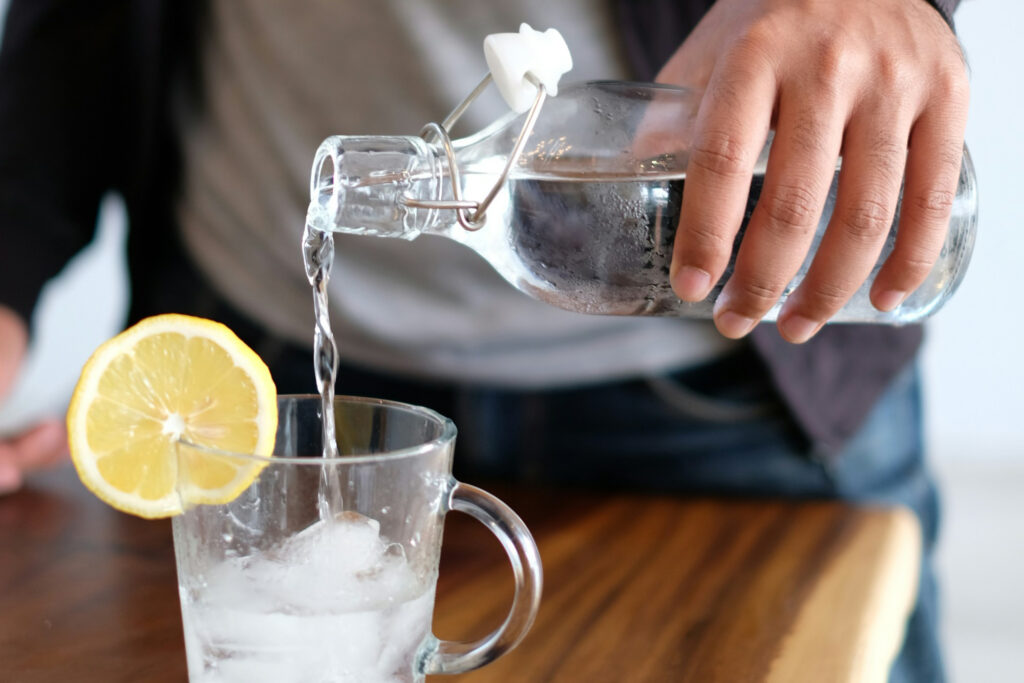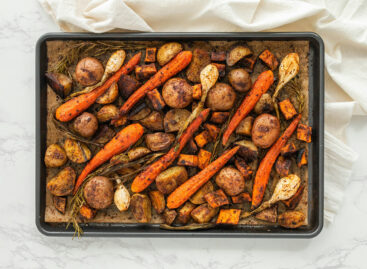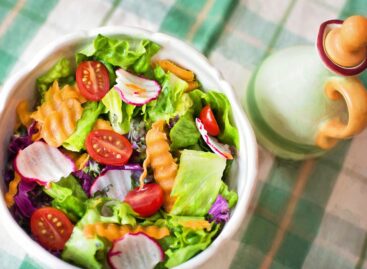Many people don’t know: we should pay attention to these foods and drinks in the summer heat
As the summer heat arrives, it is worth “changing” not only your wardrobe, but also your diet. Heat waves can be particularly stressful for the cardiovascular system, so it is important to pay attention not only to fluid intake, but also to the quality of your meals. Brigitta Bakk, dietician at Flora, shares her most important advice on how to stay healthy during hot summer days.
The heat affects everyone
 During summer heat waves, blood pressure drops, while the pulse rate increases – this puts a particular strain on the heart. Migraine symptoms may increase, our ability to concentrate may decrease, and our reaction time may increase. Sleep disturbances and exhaustion may occur, all of which can further increase the risk of various diseases. Those most at risk include those suffering from chronic diseases (such as diabetes, kidney disease, high blood pressure), the elderly, young children and pregnant women. However, heat-related complaints can also occur in healthy people, even without a diagnosed heart condition; in such cases, there is no need to panic, but it is worth paying attention to what, when and how much we put into our bodies.
During summer heat waves, blood pressure drops, while the pulse rate increases – this puts a particular strain on the heart. Migraine symptoms may increase, our ability to concentrate may decrease, and our reaction time may increase. Sleep disturbances and exhaustion may occur, all of which can further increase the risk of various diseases. Those most at risk include those suffering from chronic diseases (such as diabetes, kidney disease, high blood pressure), the elderly, young children and pregnant women. However, heat-related complaints can also occur in healthy people, even without a diagnosed heart condition; in such cases, there is no need to panic, but it is worth paying attention to what, when and how much we put into our bodies.
Fluid intake: not only quantity, but also quality
On hot days, adequate fluid replacement is essential for everyone, but especially for those who live with heart disease or high blood pressure. Although old recommendations said that heart patients should limit their fluid intake, this is a misconception, not supported by current research – fluid consumption is essential. What is really important, however, is reducing salt intake, as it binds water, which can increase blood pressure. The World Health Organization (WHO) recommends 5 g per day – this is about one teaspoon of salt. In comparison, Hungarians consume an average of 15-20 grams per day, the main source of which is not the salt shaker, but industrial foods: breads, cold cuts, canned goods, cheeses. We can also simply limit the use of salt when cooking; many people do not know, but spice mixes also contain a high percentage of sodium chloride, so we should use fresh herbs and citrus fruits instead. The sodium content of mineral waters can also vary, so check the label; 1 g of sodium corresponds to approx. 2.5 g of salt. If an isotonic drink is needed due to sports or heavy sweating, it is considered an exception, but it is not justified for average daily consumption. It is important not to wait until we are thirsty, but to have a balanced fluid intake throughout the day.
Red wine, margarine, avocado – myth or reality?
There are several nutritional myths related to heart health. One of the best-known is that drinking red wine is good for the heart. It is true that it contains resveratrol – a valuable antioxidant – but the damaging effects of alcohol far outweigh this. We are much better off if we extract the same compound from grape skins or grape seeds, in an alcohol-free form. Another common misconception is that margarines are full of trans fats – this has long been untrue. Modern, high-quality margarines, such as Flora original, are made specifically from vegetable oils that support heart health, containing valuable omega-3 and omega-6 fatty acids and vitamins. When planning a summer diet, it is worth giving preference to foods rich in potassium and magnesium: for example, bananas, avocados, oil seeds, vegetables. The minerals they contain play an important role in the functioning of the heart muscle, regulating blood pressure, and maintaining a balanced heart rhythm.
Related news
This is why you should pay attention to your heart health even in autumn – tips from a dietitian
🎧 Hallgasd a cikket: Lejátszás Szünet Folytatás Leállítás Nyelv: Auto…
Read more >Therefore, we should not believe in tempting diets – an ill-considered diet can do more harm than good.
🎧 Hallgasd a cikket: Lejátszás Szünet Folytatás Leállítás Nyelv: Auto…
Read more >What should be on your child’s plate this summer? 5 tips for more conscious eating
🎧 Hallgasd a cikket: Lejátszás Szünet Folytatás Leállítás Nyelv: Auto…
Read more >Related news
No matter how much you save, food and gadgets always take the money
🎧 Hallgasd a cikket: Lejátszás Szünet Folytatás Leállítás Nyelv: Auto…
Read more >








